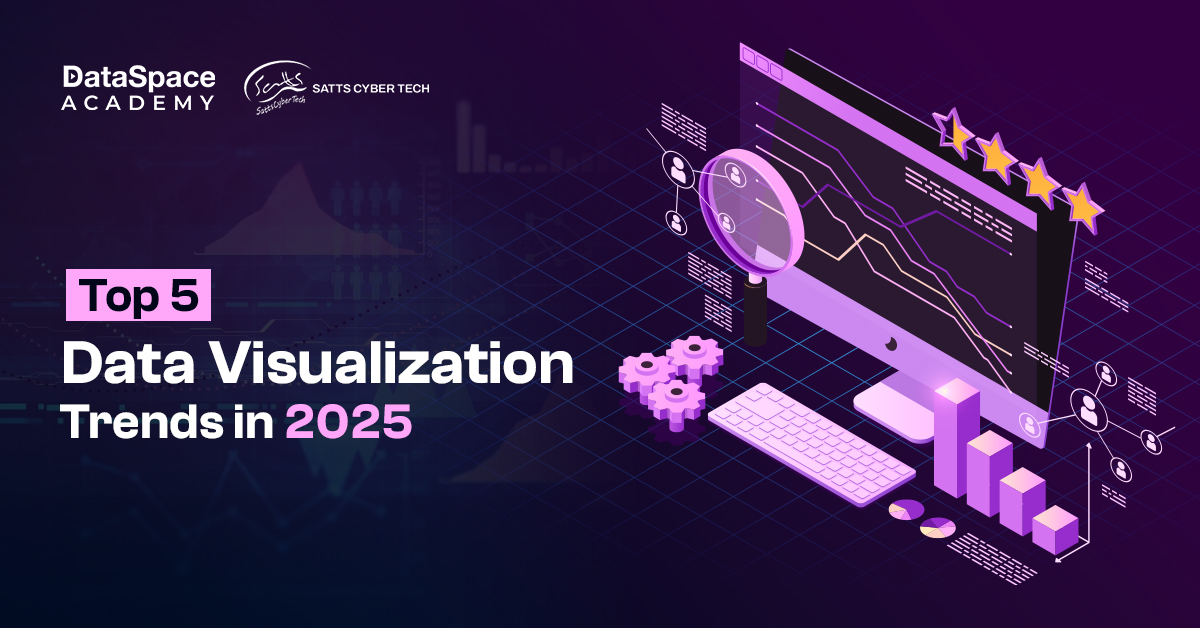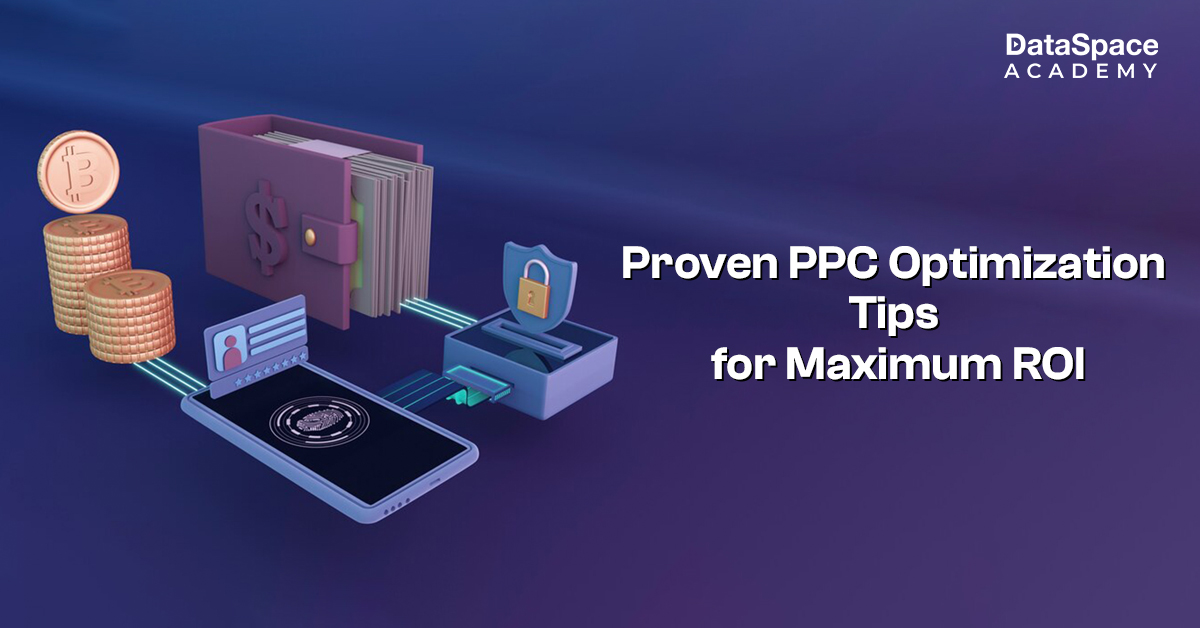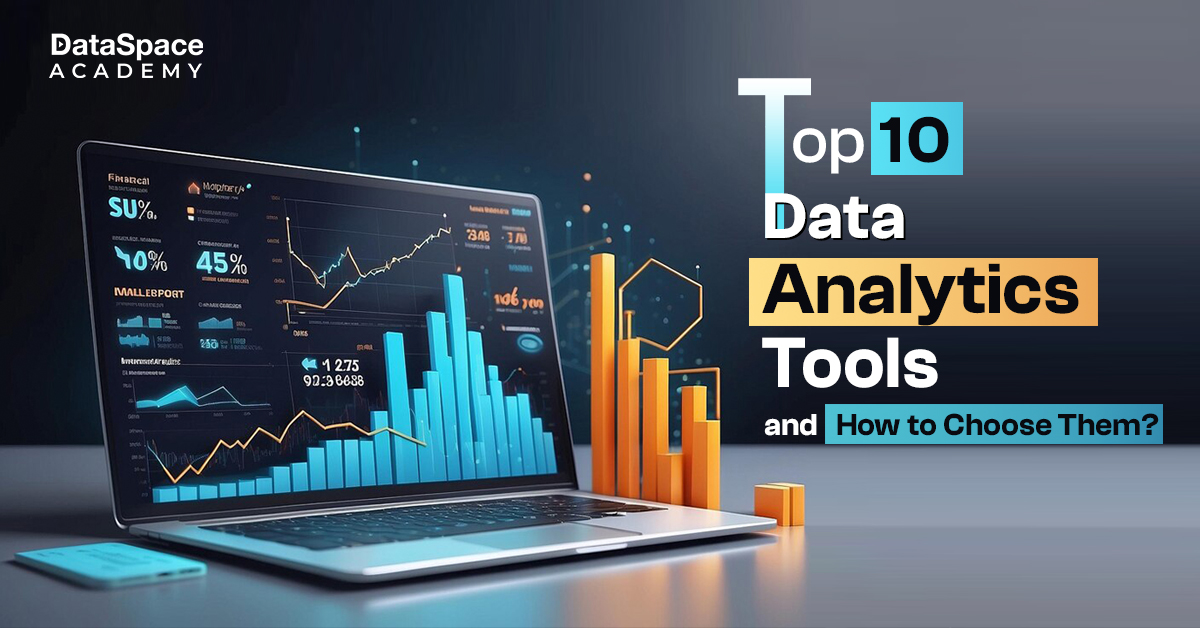Google Analytics for Beginners - Your Ultimate Guide
Last Updated : 15 Feb, 2024
 1.25L
1.25L

Introduction
Talk about popular digital marketing tools and Google Analytics will top the chart with pomp and glory. One of the most widely-used tools for tracking website performance, Google Analytics offers comprehensive insights into visitor data. The tool also helps to gauge performance of social media pages and digital marketing campaigns. and visitor data. Marketers also count on Google Analytics to discover trends and patterns. Put simply, Google Analytics serves as a catalyst to improve your marketing strategies, website, SEO, marketing campaigns, and business offerings. If you are looking forward to step into the world of digital marketing, you should gather a sound knowledge in Google Analytics. To your convenience, here is a pro guide on google analytics for beginners.
Working of Google analytics for beginners
Google analytics is engineered to track and collect user insights from all the websites visited, with the use of page tags.
Page tag works as a web bug for gathering the information of visitors.
Based on the collected data, Google Analytics generates customisable for visualising and tracking the data. The analytics service follows certain parameters for tracking, including bounce rate, page view session duration, and number of users.
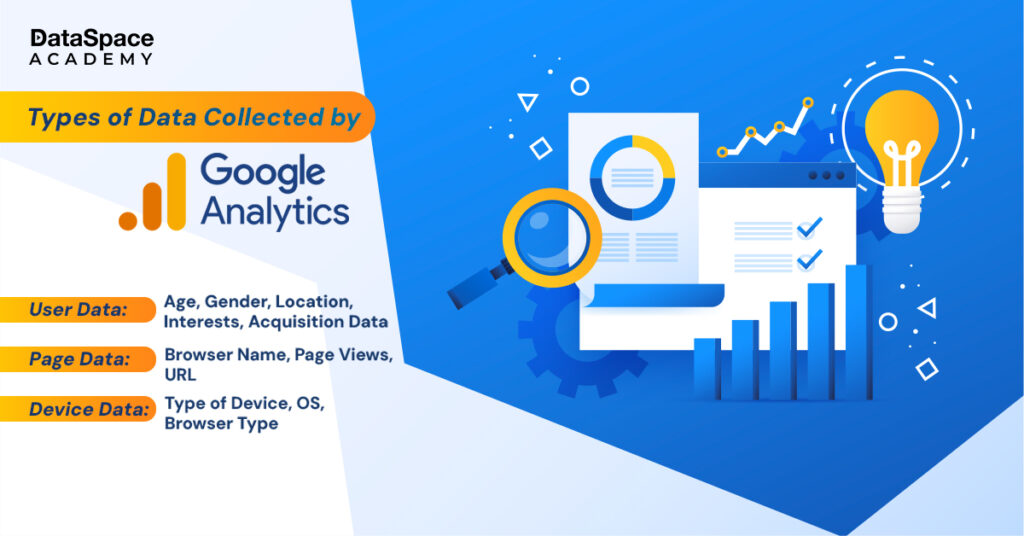
However, the page tag bug relies on cookies for data collection. Thus, if a user disables the cookies, the system is not able to collect data.
Features
Google analytics carries set of features and functions that help to analyse and identify patterns in visitor engagement. These powerful features support easy visualisation, integration, analysis, data collection and monitoring.
Some of the popular features of Google Analytics are as follows:
- Application program interface data collection
- Anomaly detection, intelligence, and predictive analytics
- Communication and sharing across email
- Funnel analysis, manipulation, and data filtering
- Monitoring and data visualisation tool such as scorecard, motion chart, and dashboard
- Segmenting data for subset analysis
Benefits of Google Analytics tool
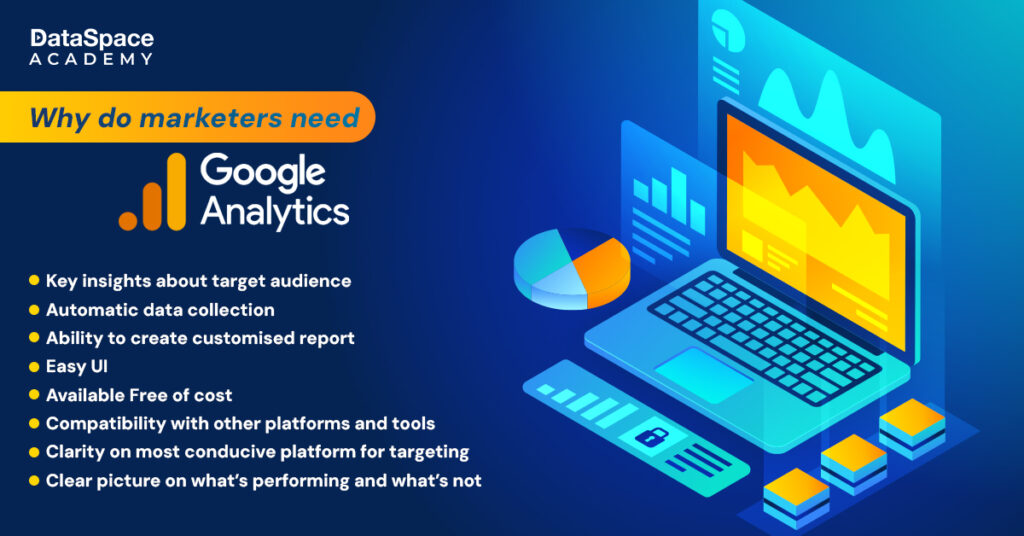
Some of the benefits of the Google analytics tool in digital marketing strategy as follows:
Complements data-driven marketing
A data-driven marketing approach enables businesses to reach informed decisions. As we have discussed, the Analytics service empowers users with a bunch of “essential” data. These insights enable marketers/businesses to identify user interests and preferences, and latest market demands. Businesses can capitalise the data gathered to create more targeted marketing campaigns.
Informed predictions
Google Analytics offers predictive analysis that offer a sneak-peek into what might and might not work in the future. These data-driven predictions help to take calculated risks with future projects/campaigns.
Optimised operation and offering
The digital marketing analytics tools offer clarity on what your target niche is liking and not liking about your offerings. It further helps businesses to enhance their offerings as per the preferences of targeted audience. This could range from optimised website to improved product/service offering.
You can join our digital marketing certification course to know more about digital analytics tools.
Higher customer satisfaction
Optimised offerings help to achieve enhanced customer satisfaction. Higher client satisfaction eventually leads to improved sales figures and accelerated business growth.
Conclusion
Summing up, Google Analytics is an indispensable part of digital marketing campaigns. The tool empowers businesses to gain clarity on user behaviour and preferences which is crucial for improved targering and optimised campaigns. If you are aspiring to join the digital marketing domain, you can enrol into our digital marketing course. Our program offers a dedicated section on Google Analytics and offers hands-on training on all major Analytics tools.
 1.25L
1.25L



